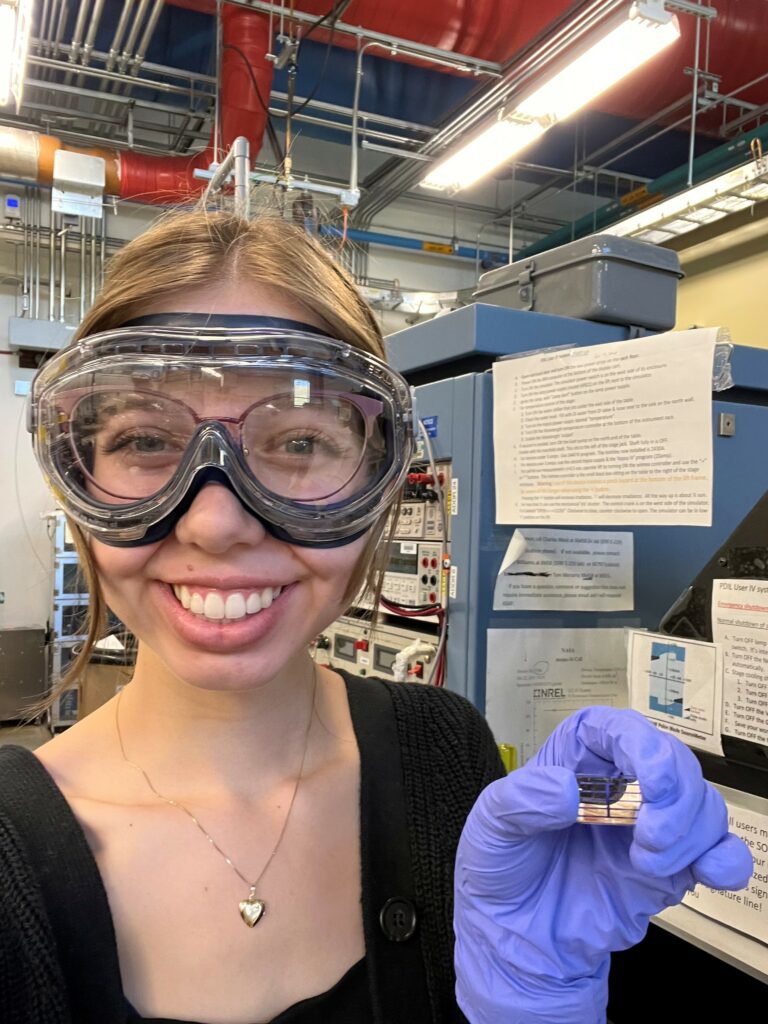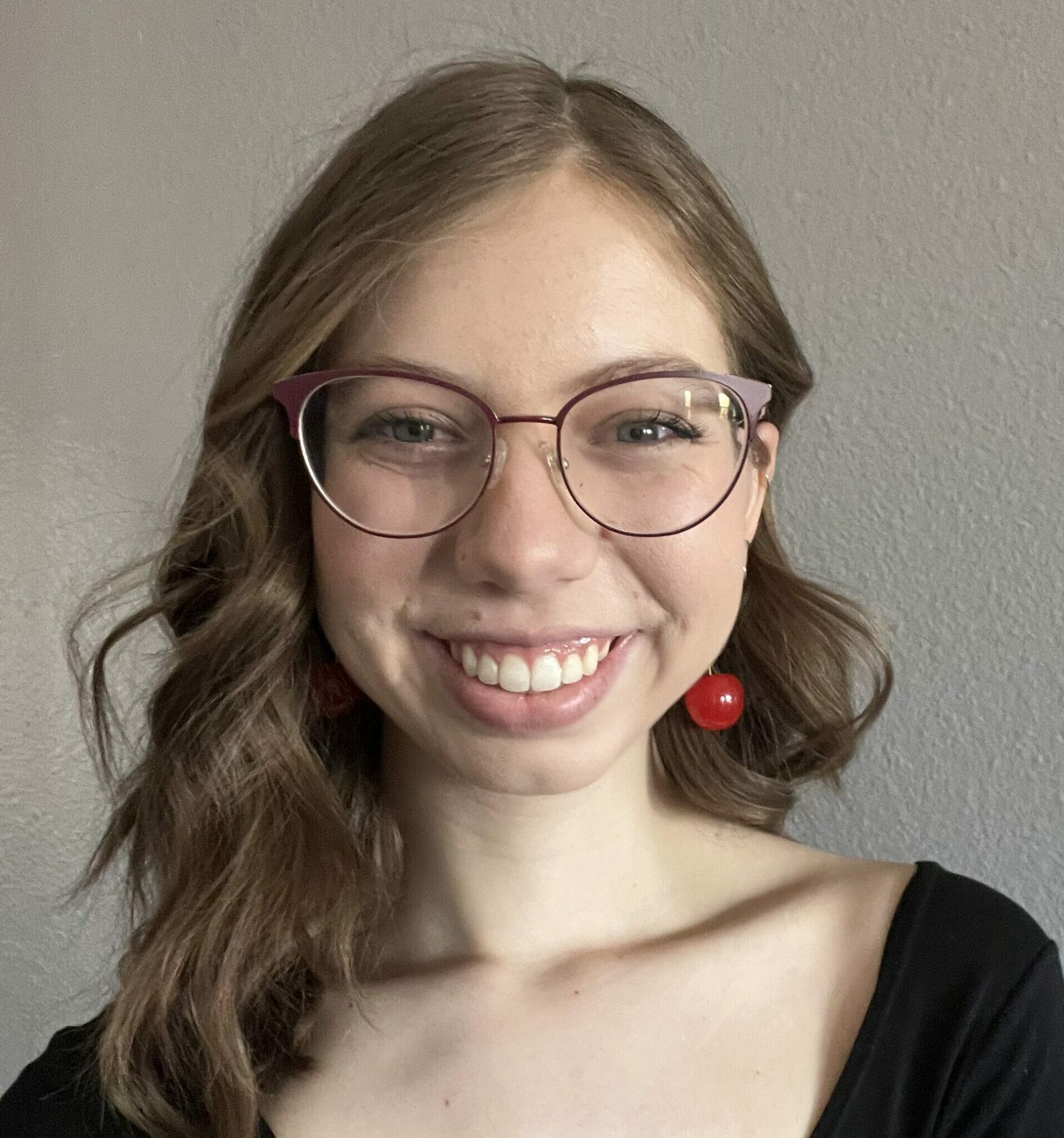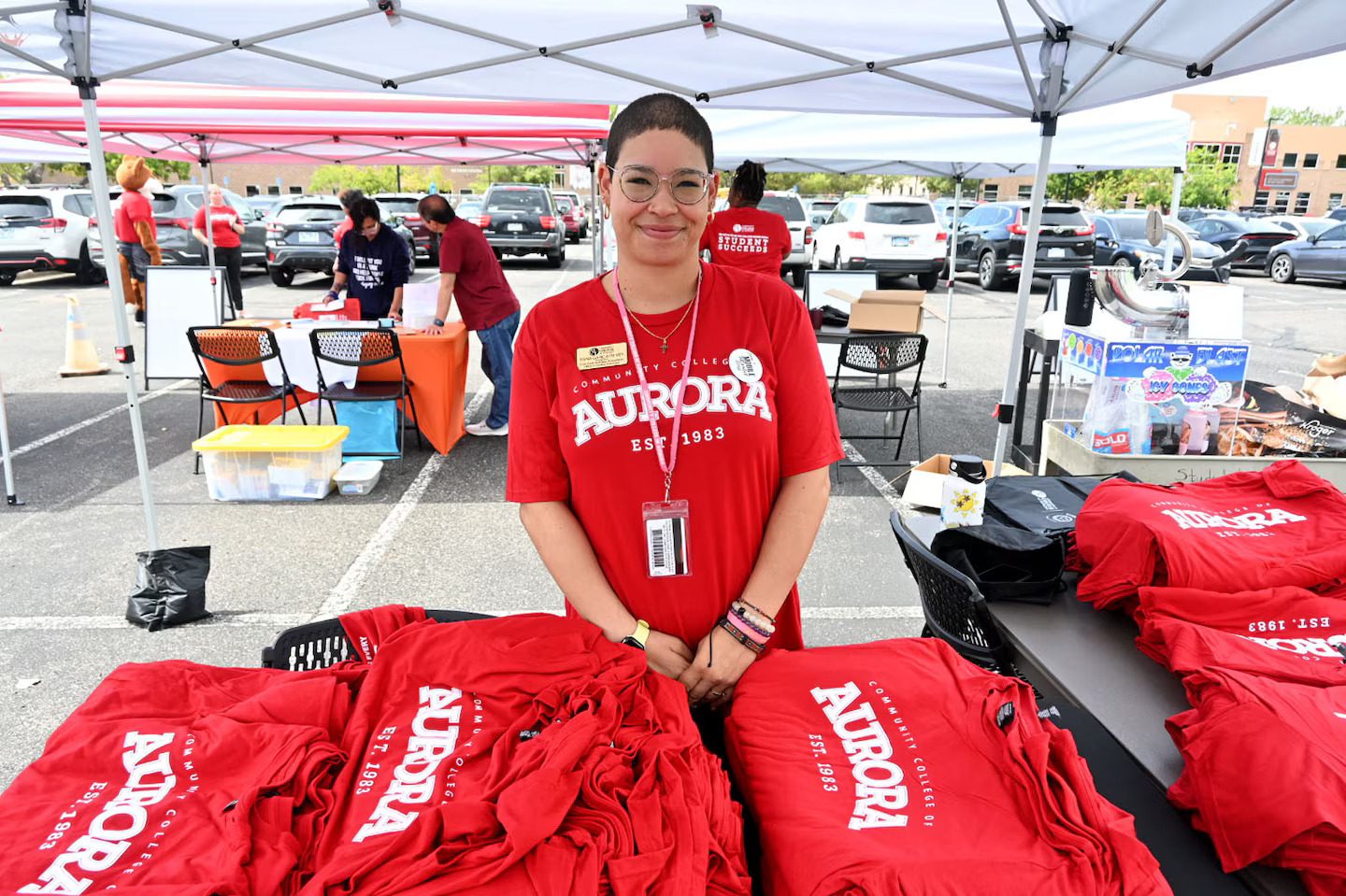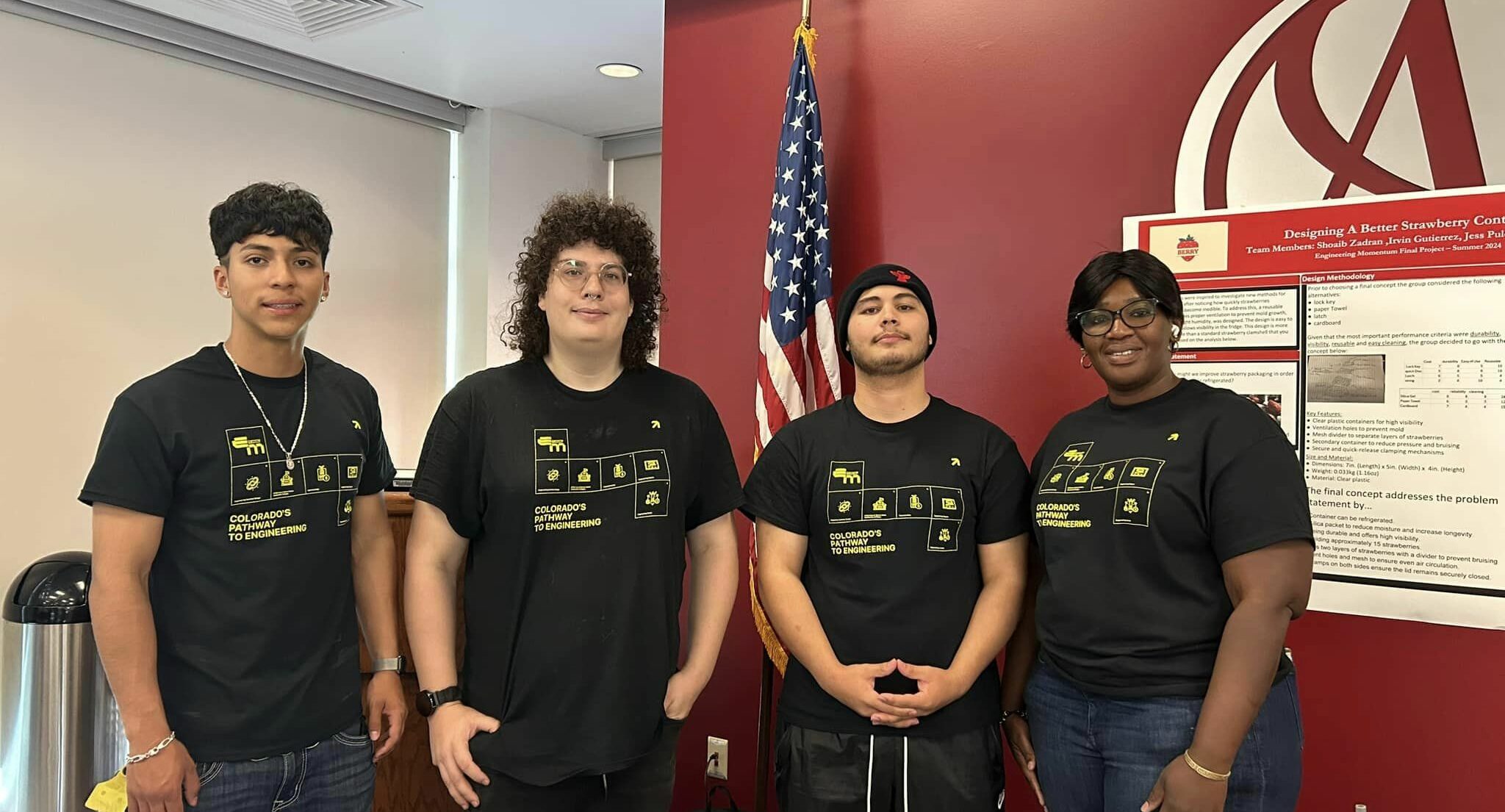
On a typical day in the lab, Amanda Behmer begins with checking her solutions that have been stirring the night before. If it looks good, she’ll deposit the solutions layer by layer onto conductive glass.
After hours of painstaking work, Behmer has created a thin, translucent film that can transform sunrays into energy.
“Organic photovoltaics are semi-transparent, so they can be used to generate power in pre-existing areas such as building windows or greenhouses,” Behmer explained. “Instead of relying on solar farms or panels on a roof, organic solar cells could be integrated into pre-existing infrastructure.”
Behmer’s project is part of a prestigious internship with the National Renewable Energy Laboratory (NREL), a federally funded research institution located in Golden, Colorado. As she rubs elbows with top scientists and researchers, she’s grateful for the confidence she’s gained as a recent Arapahoe Community College (ACC) graduate.
“Working on renewable energy, I feel like I can have a lasting impact—especially the technology I’m working on and the potential implications it could have,” she said. “It fills me with a lot of hope and makes me really excited to come into work every day.”
Gaining Skills

Behmer has long dreamed of working in a major research lab. She first heard about NREL in high school, where she and a friend conducted a science project with an NREL scientist.
“He was like, “Hey, just so you know, there are internships at NREL. I think both of you would be a really great fit,” she recounted. “‘Just keep that in mind as you’re moving forward.’”
That conversation planted a seed for Behmer. She started looking for schools that offered hands-on research opportunities and opted for ACC, drawn in part to the college’s smaller class sizes.
Behmer quickly bonded with faculty like Dr. Jacob Johnson, who invited her to join the ACC’s chemistry research group. The experiments helped hone Behmer’s lab techniques—skills she relies on every day at NREL, she said.
She also picked up several “soft skills” in her liberal arts courses and her work study job in the college’s Concurrent Enrollment office. Getting the full college experience “set the stage” for her success as an intern, Behmer said.
“I had a lot of conversations with other science majors wondering why we’re taking humanities classes or writing classes, but I felt like that was really important to become a strong communicator and a strong scientist,” she said. “All of those skills have been a great asset at NREL and something I really appreciated about my time at Arapahoe.”

Community colleges are really unique in the sense that you have so many resources and people who are rooting for you.
Keep that support system as you move forward, because it’s really helpful to have people who are cheering you on.
Moving Forward
After graduating this spring with her associate of science degree in chemistry, Behmer is eager to continue her studies. In a couple of months, she’ll pursue bachelor’s degrees in chemistry and biochemistry at the University of Colorado Denver. She also hopes she can score another internship at NREL next summer.
Looking back, Behmer says ACC was the perfect place to start her academic career. She encourages aspiring scientists to build relationships with faculty and seek out research opportunities—or create their own.
“Community colleges are really unique in the sense that you have so many resources and people who are rooting for you,” she said. “Keep that support system as you move forward, because it’s really helpful to have people who are cheering you on.”


